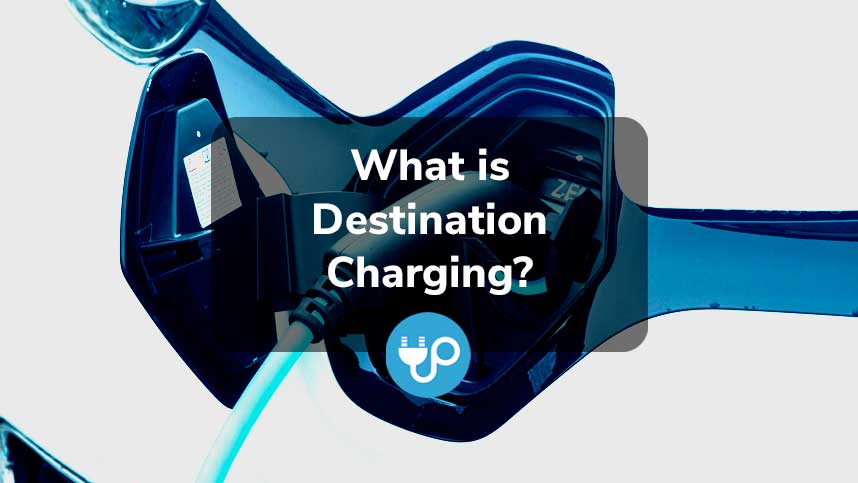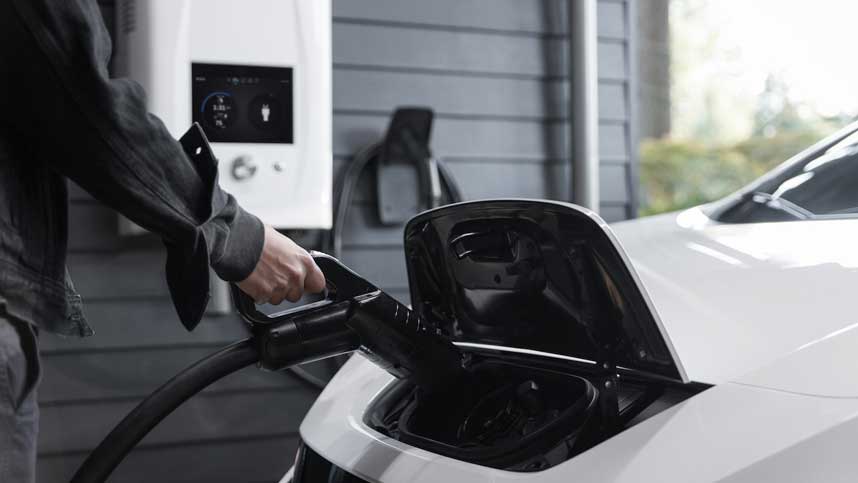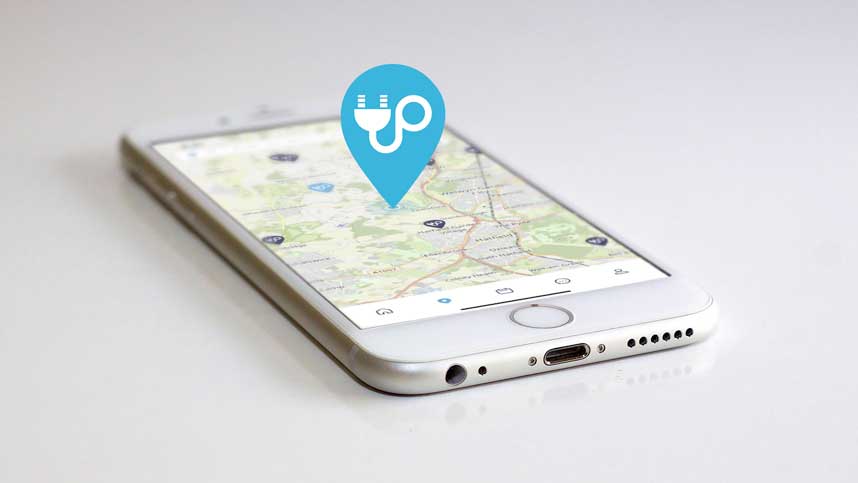
What is Destination Charging?
With more people becoming more inclined to invest in an electric vehicle, the issue of where to charge is without a doubt of prime importance and still hugely relevant.
And whilst the public infrastructure is improving, it isn’t without its many flaws.
Not all service stations in the UK have EV charge points, with many that are available frequently being unusable for a variety of reasons.
Some of the most common reasons are faulty chargers, incompatibilities and unavailability in more rural, less developed areas.
Since there’s still many public places which still lack suitable EV charging, there’s no doubt there needs to be an alternative option.
And this is where destination charging and its unlimited potential could seriously come into play.
Chapters
What is Destination Charging?
In order to better explain what destination charging is, it’s important to firstly explain the three types of charging locations that EV drivers can consider.
First, there’s home charging.
This is by far the most common and convenient form of EV charging.
It’s typically carried out overnight, so that the driver can wake up to a fully charged car the following morning.
Secondly, there’s public charging stations.
This option is ideal for quick recharging requirements.
And finally there’s destination charging.
This is charging that’s carried out during various points along a journey, rather than stopping en route.
Destination charging is important as it’s commonly done at a place where one is staying, such as a hotel, a friend's house or for a day out to effectively “top up charge” the vehicle after a long trip.
Destination charging is mostly done by EV drivers who’re on a multi-stop trip to juice up the battery a little at a time, hence the term “top up charging”.
Essentially, it ensures the car has sufficient charge to continue onto the next leg of the journey without necessarily charging from empty to full.
It’s quick, efficient and generally more cost effective.
Why Destination Charging is Important
When organising a trip, a typical EV driver may need to plan where they intend to charge the car along the way.
By carefully planning their destination charging points, a considerable amount of time will be saved, thereby allowing one to complete the trip in a shorter space of time.
If the driver intends to use places to top up, it makes for a simpler journey without the need to stop at service stations to pay for expensive rapid chargers, which often have long queues and wait times.
And that’s if the charger points are even operational!
Moreover, an EV driver who chooses to stay somewhere overnight can take advantage of charging overnight, giving them the peace of mind and convenience of waking up the next day to a fully charged car.
Where Does Destination Charging Usually Happen?
Home Charger Sharing
Destination charging can be carried out by opting to rent a privately owned home charger, or as it’s also referred to, peer-to-peer EV charger sharing.
There are many EV owners who’ve installed a charger at home.
By renting it out to other EV drivers during certain hours when not in use, they can make a passive income in return.
Home charger sharing options are available via charger sharing apps like Joosup.
Once installed, it’s easy to locate those which are within close proximity or near to where you’re headed on your journey.
Then one can book a suitable time to charge their EV using the app.
Hence it’s very convenient and relatively affordable.
Public Charging
Public charging is carried out at public locations where EV charge-points are available.
Besides charging hubs usually found on major roads, there’s a number of stores, supermarkets and shopping complexes which have installed EV chargers in their car parks.
These tend not to be rapid chargers however, and are usually rated at 7.4kW per hour; the same rate as home chargers.
Public charging can also be carried out at motorway services, airports, hotels and close to public areas or public entities’ premises.
General public charging tends to utilise level 2 or DC fast charging.
Workplace Charging
Workplace charging is becoming increasingly more commonplace, although this is usually only available at larger office complexes.
More businesses are beginning to realise that by investing in EV chargers for their staff, they can benefit as a business as well as improve their reputation through such positive change.
Besides helping to attract more customers via good PR, as well as offering a convenient service to employees who drive EV’s, such businesses would also be helping the environment in the move to electrified vehicles.
How to Find Destination Charging?
The most straightforward and convenient method is to make use of charger sharing apps.
A great example of such an app is Joosup.
This makes searching for a bookable charging session quick and easy.
Users can filter the results to locate charging stations within close proximity to their precise locations.
Alternatively, they can book charging slots close to where they intend to travel or stay overnight.
In recent months, many hotels are adding EV chargers as this has proved to be a great way of attracting more customers.
If one is traveling with an electric vehicle, they will naturally prefer to stay at a hotel where there’s an EV charger readily available.
The app can also be used to look for homes locally or nationally where a home EV charger is being made available to rent.
Simply put, destination charging allows you to plan your charging sessions well in advance, rather than risk a ‘just in time’ charging strategy, which could potentially backfire.
By being able to book all necessary charging sessions before you travel, that old foe range anxiety is no longer a concern, making your trips as smooth and stress free as possible.
Advantages of Destination Charging
Destination charging offers various benefits, including:
- The driver’s EV will be charging whilst parking, freeing up time to do other things.
- There’s no concern that the car will run out of charge as one can pre-book their destination charging sessions in advance by locating a guaranteed charge point at a particular destination. Thus range anxiety can be greatly reduced.
- One can avoid the inconvenience of long queues at rapid chargers found at service stations should this be the last resort.
Why Individuals & Businesses Should Charger Share
Businesses that invest in EV charging stations can benefit in multiple ways.
First of all, the provision of EV charging stations can help to attract customers.
Considering that more people have invested, or are going to have to invest in an EV in the near future, this is a smart move.
Moreover, if a customer has parked their car to charge in such a place, this will automatically lead them to be more inclined to spend time there.
This will in turn lead to repeat visits as it becomes a part of their regular public charging routine.
With EV charging stations installed at business premises, there’s a clear demonstration they’re willing to play a part in building a more sustainable future.
Besides, they will be offering visitors a better experience.
Needless to say, if there’s sufficient space, even employees can benefit from such chargers.
Conclusion
When considering the current energy and cost of living crisis, home charging remains the most ideal option.
However, there’s going to be situations where you cannot charge your EV at home.
In such cases, destination charging carried out at private off-street locations is better than charging at public rapid chargers.
Besides the fact that the cost of public EV chargers has increased considerably lately, there are also various other reasons which make this more convenient and affordable too.
Owning an EV does not mean that you cannot indulge in distance driving.
With apps like Joosup, you can say goodbye to range anxiety and plan your journeys easily, because you’ll be able to find EV charging stations in locations in close proximity to your destination points.
Blog Archive
- Where Can I Charge My Electric Car?
- Electric Car Maintenance and Servicing Guide
- How Often Should I Charge My Electric Car?
- How to Check EV Battery Health
- Do Electric Cars Pay Road Tax?
- October 2024 Budget: Key EV News
- EV vs ICE – Which is Best?
- Should I Charge My EV to 80 or 90 or 100%?
- UK Government Announces Hybrid Sales Allowed Until 2035
- BEV vs PHEV – What’s the Difference?
- Definitely Not A Guru (Jim Starling) Reviews Joosup
- How Long Do Electric Car Batteries Last?
- 25 New Electric Car Brands on UK Roads
- General Election 2024: Major Party Net Zero Policies Compared
- Electric Car Service Costs vs ICE
- CHAdeMO vs CCS – What’s the Difference?
- Mr EV Reviews Joosup
- What is the ZEV Mandate?
- Spring 2024 Budget: No VAT Rate Cut on Public EV Charging
- What is Regenerative Braking?




